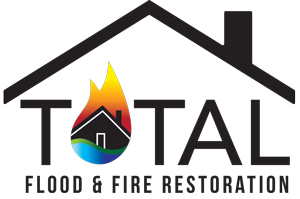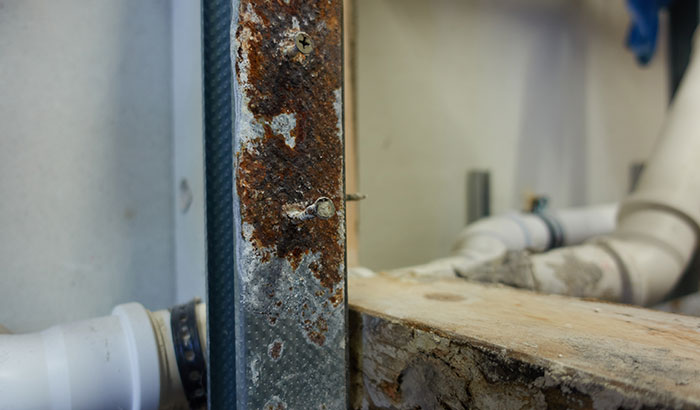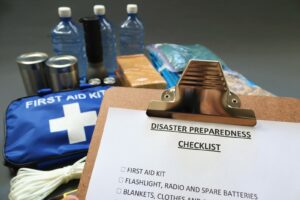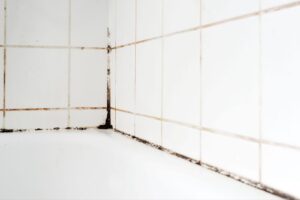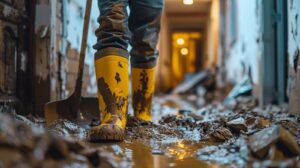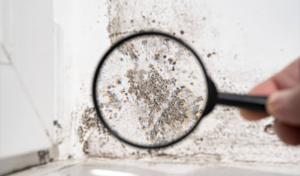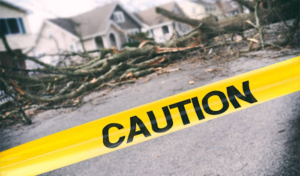Not everyone wakes up wondering if they have sewage damage in their home. Our plumbing is one of those things that we take for granted when it is working and don’t give a second thought for.
When problems happen with the sewer, you will probably know even before a professional diagnoses the problem. If you have noticed any of the following indicators around your house, your home may be the victim of plumbing damage.
Unpleasant Odors
One of the most obvious signs of sewage damage in your home is the presence of strong, unpleasant odors. These smells are often described as musty, damp, or like rotting garbage.
You might notice these smells the strongest near the bathroom or any other area where plumbing is present. If you can’t get rid of these smells, you may have sewage damage.
Visible Damage
Another way to tell if you have sewage damage in your home is to look for visible signs of damage. This might include water stains on walls or ceilings, warping or discoloration of flooring, or peeling paint.
Signs like this may be most prevalent in areas near plumbing, such as bathrooms or kitchens. If you notice any visible damage in the walls or ceiling near or around your bathrooms or kitchen, you should have a professional check it out to determine if it’s caused by sewage.
Slow Drainage
Slow drainage in your sinks, toilets, or shower is another possible indication that you have sewage damage in your home.
Slow-draining plumbing could be caused by a blockage in the pipes, preventing water from flowing through as it should. Slow drainage can also be caused by a buildup of debris in the pipes, leading to sewage backups. If you notice slow drainage in your home, it’s important to call a plumber to have the issue looked at.
Water Damage
Water damage is one of the most common signs of sewage damage in your home. This may include discoloration, warping, or stains on walls, floors, or ceilings. Leaks or overflowing toilets can also cause water damage.
If you notice water damage in your home, observe closely to determine if the source is from a sewer line.
Gurgling Sounds
Gurgling sounds coming from your drains or toilets may indicate a problem with your plumbing. These sounds are often caused by a blockage in the pipes or an issue with the venting system. If you hear gurgling sounds in your home, it’s essential to have a plumber check it out to determine if it’s caused by sewage.
Mold and Mildew
Mold and mildew are common indicators of sewage damage in your home. These fungi thrive in damp and humid environments, so if you notice them growing in areas near your plumbing, you may have sewage damage.
Mold and mildew can cause health problems, so it’s important to address any issues as soon as possible.
Pest Infestations
Pests such as cockroaches, rats, and mice are attracted to the moisture and debris found in sewage. If you notice an infestation of these pests in your home, you may have sewage damage. These pests can carry disease and can cause damage to your home, so it’s important to address any issues as soon as possible.
Foul Smells from Drains
Foul smells coming from your drains are another sign that you may have sewage damage in your home. A variety of things, including blockages in the pipes or a buildup of debris, can cause these smells. If you notice foul smells coming from your drains, it’s important to have them checked out by a plumber.
Backups
Various things, including blockages in the pipes or debris buildup, can cause backups in your sinks, toilets, or showers. If you notice backups in your home, it’s important to have them checked out by a plumber to determine if they’re caused by sewage.
Health Issues
Health issues such as respiratory problems, skin irritation, and headaches can also signify that you have sewage damage in your home. Exposure to sewage and the bacteria, viruses, and other contaminants it contains can cause these symptoms.
Suppose you or your family members start experiencing these health issues, and you suspect it could be related to sewage damage in your home. In that case, you’ll want to address it as soon as possible to mitigate the health issues you may experience from sewer damage.
Keep in mind that sewage can also contain hazardous materials such as lead, pesticides, and other chemicals that can cause serious health problems if not handled properly.
How to Recover from Sewage Damage
If you suspect sewage damage in your home, the first step is to contact a professional. A water damage restoration specialist will be able to properly assess the extent of the damage and recommend the appropriate course of action.
They will be able to identify the source of the problem and determine the best way to repair it, whether it’s a simple fix like clearing a blocked pipe or a more complex repair such as replacing a section of pipe.
Once the source of the problem has been identified, the repair process can begin. This may involve cleaning up contaminated areas and removing damaged materials, such as drywall or flooring. In addition, any affected areas will need to be thoroughly sanitized to remove any bacteria or other contaminants.
Depending on the extent of the water damage, it may be necessary to bring in specialized equipment, such as dehumidifiers or air movers, to dry out the affected areas. Once the repair work is complete, the area will need to be tested to ensure it is safe for use.
It’s important to note that sewage damage can be a serious problem and should not be taken lightly. It is not only unsanitary but also poses a health risk and can cause structural damage to your home.
It’s essential that you take immediate action to address sewage damage and have it repaired as soon as possible to prevent further damage and protect your and your family’s health.
Total Fire and Flood Restoration To Help You
If you suspect your home has sewage damage, you will not want to wait to start your water restoration process.
Total Fire and Flood Restoration can help you get back to normal. Putting off your sewage repair or water damage repair can affect your health. Get started repairing your home by contacting us today!
